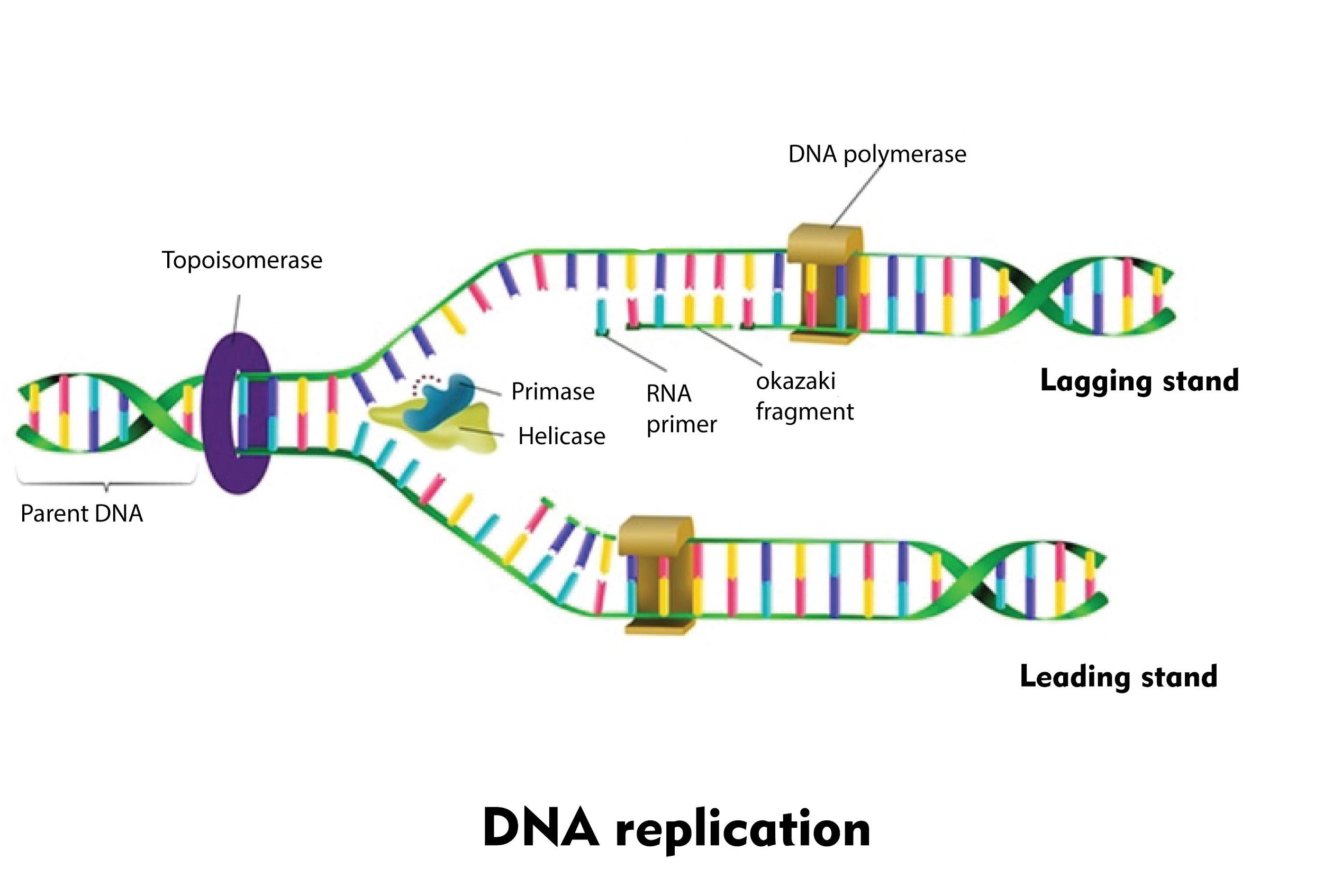
What is the importance of copying of DNA during reproduction ?
Answer
591k+ views
Hint:Copying of DNA leads to DNA replication at cell division. It is essential for the transfer of parent(s) genes to the next species of the same kind. This factor is centered on the continuity of species life.
Complete answer:
During the reproduction process, the DNA copying (replication) mechanism is important as the copying of DNA helps to transfer the information or characters from parents to offspring. Copying DNA is also important as DNA (Deoxyribonucleic acid) is the genetic material found in the chromosomes that are present in a cell nucleus.
During reproduction, copying of DNA is necessary, because:
- DNA replication ensures that an equivalent amount of DNA is obtained by each daughter cell produced at the end of the cell division.
- If DNA is not replicated then the cells of the daughter will not obtain all the requisite genes.
- Essential proteins encoded by DNA can be missing if DNA is not replicated.
- Copying DNA can lead to recombination leading to evolution.
- Passing of genetic material from one generation to another triggers identical functions for the species.
- Demographic stability is maintained.

Note: DNA determines the design of an individual's body. The DNA which is passed to offspring from parents makes them look identical. For reproduction the copying of DNA is important. During replication, additional DNA copies are made which are necessary for the new cells formed after cell division. Also, some minor changes during DNA replication are responsible for bringing long-term variations.
Complete answer:
During the reproduction process, the DNA copying (replication) mechanism is important as the copying of DNA helps to transfer the information or characters from parents to offspring. Copying DNA is also important as DNA (Deoxyribonucleic acid) is the genetic material found in the chromosomes that are present in a cell nucleus.
During reproduction, copying of DNA is necessary, because:
- DNA replication ensures that an equivalent amount of DNA is obtained by each daughter cell produced at the end of the cell division.
- If DNA is not replicated then the cells of the daughter will not obtain all the requisite genes.
- Essential proteins encoded by DNA can be missing if DNA is not replicated.
- Copying DNA can lead to recombination leading to evolution.
- Passing of genetic material from one generation to another triggers identical functions for the species.
- Demographic stability is maintained.

Note: DNA determines the design of an individual's body. The DNA which is passed to offspring from parents makes them look identical. For reproduction the copying of DNA is important. During replication, additional DNA copies are made which are necessary for the new cells formed after cell division. Also, some minor changes during DNA replication are responsible for bringing long-term variations.
Recently Updated Pages
Master Class 11 Computer Science: Engaging Questions & Answers for Success

Master Class 11 Business Studies: Engaging Questions & Answers for Success

Master Class 11 Economics: Engaging Questions & Answers for Success

Master Class 11 English: Engaging Questions & Answers for Success

Master Class 11 Maths: Engaging Questions & Answers for Success

Master Class 11 Biology: Engaging Questions & Answers for Success

Trending doubts
One Metric ton is equal to kg A 10000 B 1000 C 100 class 11 physics CBSE

There are 720 permutations of the digits 1 2 3 4 5 class 11 maths CBSE

Discuss the various forms of bacteria class 11 biology CBSE

Draw a diagram of a plant cell and label at least eight class 11 biology CBSE

State the laws of reflection of light

10 examples of friction in our daily life




